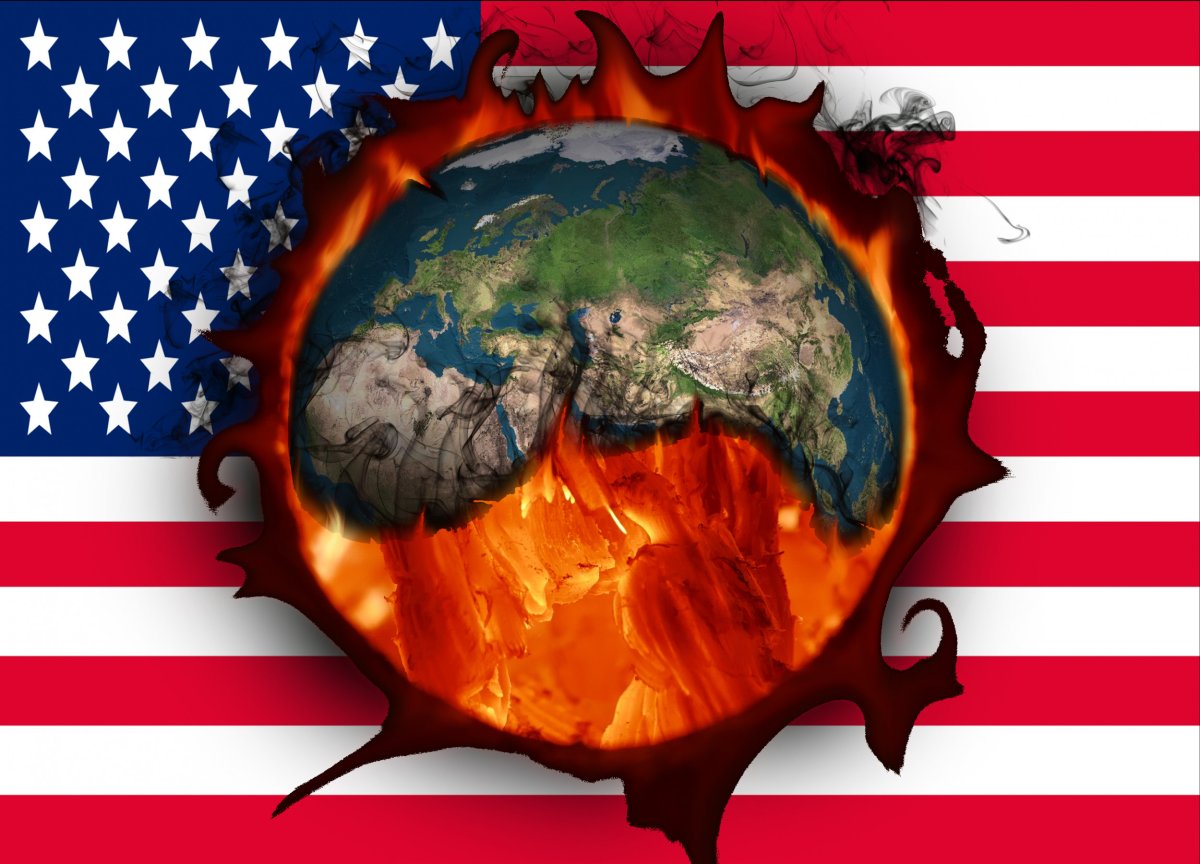The U.S. media gives climate change deniers too much prominence by placing people with little understanding of the complexities involved in the same league as top scientists, a study has found. This imbalance has created an unrealistic picture of climate change, hindering efforts to raise awareness of the problems the planet faces.
"It's time to stop giving these people visibility, which can be easily spun into false authority," University of California Merced Professor Alex Petersen said in a statement. Peterson was one of three scientists who traced the digital footprints of climate deniers and scientists across 100,000 media articles for a study in Nature Communications. They discovered about half of mainstream outlets actively seek out climate change denying experts for coverage.
Media outlets reporting on climate change will bring in deniers in an effort to "balance" coverage and present an alternative view. However, to viewers, this then places them—often a person with no scientific background—on the same level as someone who is an expert in the field.
"It's not just false balance; the numbers show that the media are 'balancing' experts—who represent the overwhelming majority of reputable scientists—with the views of a relative handful of non-experts," study author Professor LeRoy Westerling said in a statement. "Most of the contrarians are not scientists, and the ones who are have very thin credentials. They are not in the same league with top scientists. They aren't even in the league of the average career climate scientist."
Last year, the U.K.'s BBC was found to have broken accuracy guidelines in 2017 after Lord Nigel Lawson—a known climate change denier—made inaccurate statements that went unchallenged. Following the incident, the broadcaster sent out a memo to staff saying it gets climate change coverage "wrong too often" and that journalists "do not need a 'denier' to balance the debate," the The Guardian reported.
In a study published in Environmental Communication in 2018, researchers looked at how information from climate deniers is spread. It found climate denying groups Watts Up With That and the Global Warming Policy Forum "makes use of social media affordances to craft the appearance of legitimacy" and that they manipulate scientific information and circulate it to "shape environmental discourse practices."
In the new research, Petersen and colleagues looked at 386 prominent climate deniers and 386 climate scientists. They looked at 200,000 scientific journals and 100,000 media articles—from both traditional and new formats. Their findings showed climate change deniers were 49 percent more visible to audiences than climate change scientists. Where media sources adhere to traditional editorial standards, the visibility of the two groups was on par. The only area where scientists had prominence was within scientific publications. New media, they say, "facilitates the production and mass distribution of assertive content" by climate change deniers, "which intentionally or not, crowds out the authoritative message of real" climate scientists.
The team says a legitimate counterpoint to a climate scientist would be another scientist with similar expertise. Giving oil lobbyists or politicians with an agenda equal air time is not balance, they say. "It's well known now that a well-financed propaganda campaign on behalf of conservative fossil fuel interests led mainstream media to frame reporting on climate change science as political reporting rather than science reporting," Westerling said. "Political reporting focuses its narrative around conflict and looks to highlight competing voices, rather than telling the story of the science."
Katharine Hayhoe, a climate scientist at Texas Tech University, who was not involved in the research, said the study shows there is a growing trend towards "customized media" that is helping spread disinformation. "This study is a wake-up call for all media to do better," she said in the statement, "to check their sources in order to accurately communicate the reality of human-induced climate change, the relevance of its impacts and the urgency of action."

Uncommon Knowledge
Newsweek is committed to challenging conventional wisdom and finding connections in the search for common ground.
Newsweek is committed to challenging conventional wisdom and finding connections in the search for common ground.
About the writer
Hannah Osborne is Nesweek's Science Editor, based in London, UK. Hannah joined Newsweek in 2017 from IBTimes UK. She is ... Read more





